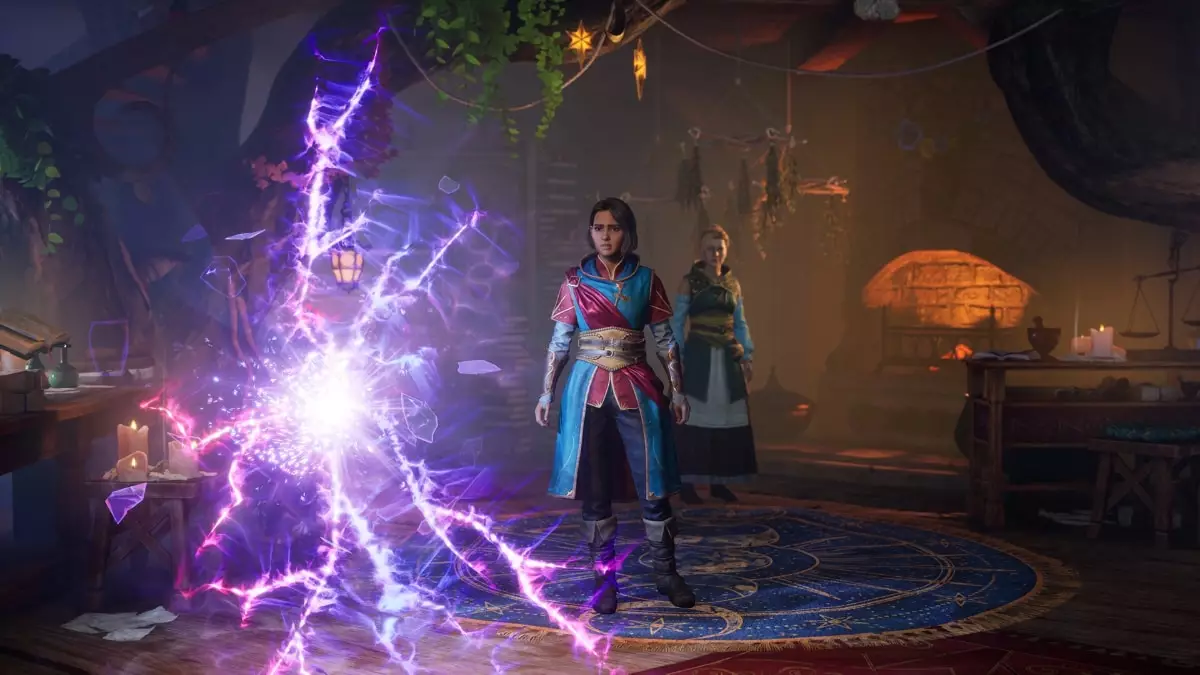As the gaming industry gears up for yet another round of innovation, Electronic Arts (EA) has stepped into the spotlight with its announcement of “Split Fiction,” a cooperative game set to launch as a flagship title for the Nintendo Switch 2 on June 5. While the excitement surrounding new features associated with the Switch 2 is palpable, the implications of the GameShare functionality, which allows players of the original Switch to engage in local multiplayer using a single copy of the game, have sparked widespread debate. Is this a bold move forward or a confusing misstep that undermines the very essence of gaming inclusivity?
What is GameShare and Why Does it Matter?
The concept of GameShare, as touted by EA, seems alluring: it invites players to connect through their consoles and share experiences in the rich, narrative-driven environment of “Split Fiction.” Initially, EA pronounced that only Switch 2 users could benefit from this sharing feature. However, the new development—whereby players of the original Switch can partake in this gaming joyride—raises alarms. Wouldn’t this simplicity contradict Nintendo’s initial guidance that only Switch 2 titles would share compatibility? This inconsistency highlights a deeper friction in the console’s ecosystem, which could confuse consumers.
Loyal Nintendo Switch players may feel a sudden and acute sense of betrayal. They invested in the original Switch console, nurtured their gaming library, and now are told that only certain features available on the new hardware can enhance their experiences. It’s frustrating; they are largely being shunned from the advancements that the fresher technology brings. It draws attention to how crucial clarity in messaging is as gaming technology continues to rapidly evolve.
The Hybrid Dilemma: Navigating Console Compatibilities
GameShare’s complex execution raises critical questions about console compatibility in general. EA’s decision to allow owners of the original Switch to utilize the GameShare feature ultimately invites confusion. What happens when developers create a game tailor-made for the architectural advancements of the Switch 2 yet offer partial access to an older, incompatible console? The potential fragmentation of gaming communities as a result of such a feature could alienate players who feel stuck in a bygone era, especially if developers are prioritizing newer hardware over maintaining a unifying game-sharing experience.
Indeed, the overlapping mountains of expectation from Nintendo’s loyal customer base and EA’s ambitious plans create a muddled battleground. As gaming communities expand, it is vital that platforms facilitate inclusivity without leaving fans of previous consoles in the lurch.
The Hidden Costs of Cross-Play and Friend’s Pass
Electronic Arts has also introduced additional features like cross-play compatibility and the Friend’s Pass. While they sound promising, the value of these elements in the larger context must be scrutinized. Cross-play, enabling various platforms—PC, PS5, Xbox Series S/X, and Nintendo Switch 2—opens up avenues for broader player interactions, yet at what cost? One could argue that the creative energy devoted to incorporating these cross-platform capabilities may detract from optimally delivering content for each platform, particularly those players still stuck on their original Switches.
Moreover, the Friend’s Pass—which allows for shared gaming experiences on a single title—by design suggests liberal access that may lead to monetized consequences over time. What does it mean for the longevity of a title when players feel unencumbered by ownership? Will this lead to a trend where developers prioritize generating revenue through ancillary purchases or downloadable content instead of focusing on polished, complete gaming experiences?
Anticipation Meets Trepidation: The Pre-Order Reveal
With pre-orders beginning April 24 at a price point of $49.99, the anticipation for “Split Fiction” runs high. Still, gamers are left with a stark choice: plunge into what promises to be a landmark title for a new console or cling to the threads of a legacy console that could very well become a relic in a swiftly advancing digital landscape.
As we are swept up in the flurry of announcements and pre-launch buzz, we must ask ourselves; does gaming evolution necessitate an exclusionary practice? With the dilemma of Switch compatibility dangling in the air, the question becomes less about the game itself and more about how modern gaming sacrifices community connections at the altar of technological advancement. The outlook remains uncertain. Will “Split Fiction” unite or divide? Only time will unfold this critical narrative.


Leave a Reply